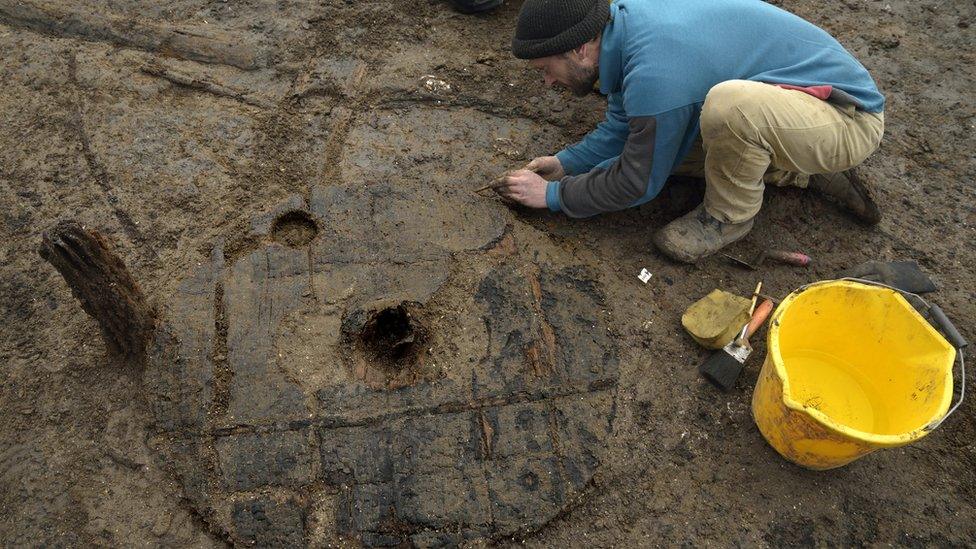'Britain's Pompeii' findings could go on display near Peterborough
- Published
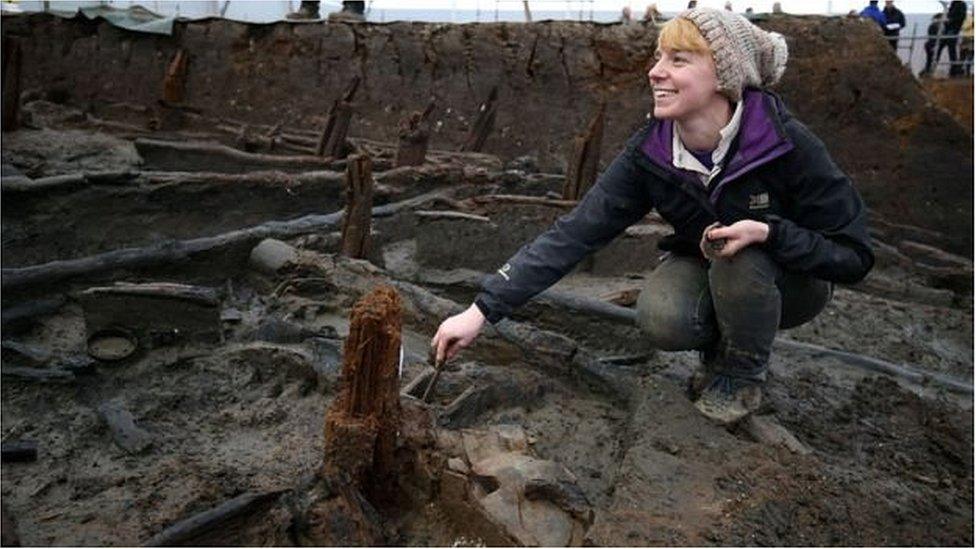
Archaeologists said the 3,000-year-old findings at Must Farm were "unprecedented"
Discoveries unearthed at a site dubbed "Britain's Pompeii" could be displayed at a dedicated museum.
The burnt-down Bronze Age village was uncovered by archaeologists near Whittlesey, Cambridgeshire, in January 2016.
Civic leaders, historians and academics are in talks about how best to display the findings which reveal what life was like in the Fens 3,000 years ago.
Those behind the idea say it will put the area on an "international stage".
What did Bronze Age Britons eat and other things the site tells us
Findings at Must Farm were said to be the "best-preserved Bronze Age dwellings ever found" in the country.
Among the discoveries was a complete wheel which archaeologists described as "unprecedented".

Steve Bowyer, from growth organisation Opportunity Peterborough, said a museum could put the area on the "international stage"
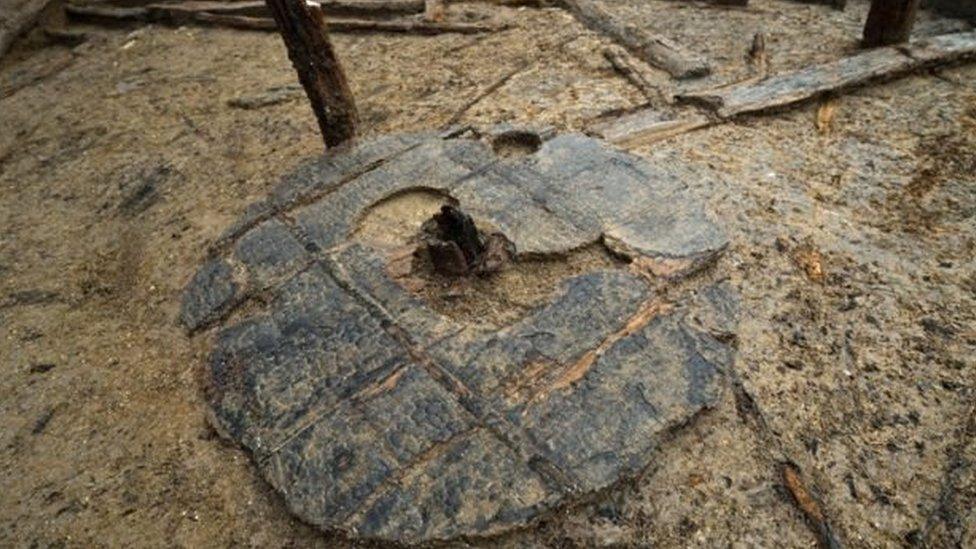
The 3ft-diameter (one metre) wooden wheel found dates from about 1,100 to 800 BC
A report looking at the possibility of creating a National Bronze Age museum for the city had initially been prepared in 2014.
It was produced with the discoveries at Flag Fen, another Bronze Age site, in mind.
The report is being reconsidered to take into account the latest findings.
Steve Bowyer, from growth organisation Opportunity Peterborough, said: "There's a real opportunity.
"We need to exploit that to put Peterborough and the region as a whole on to the international stage for tourism, for museums, for exhibitions, for culture, for heritage."
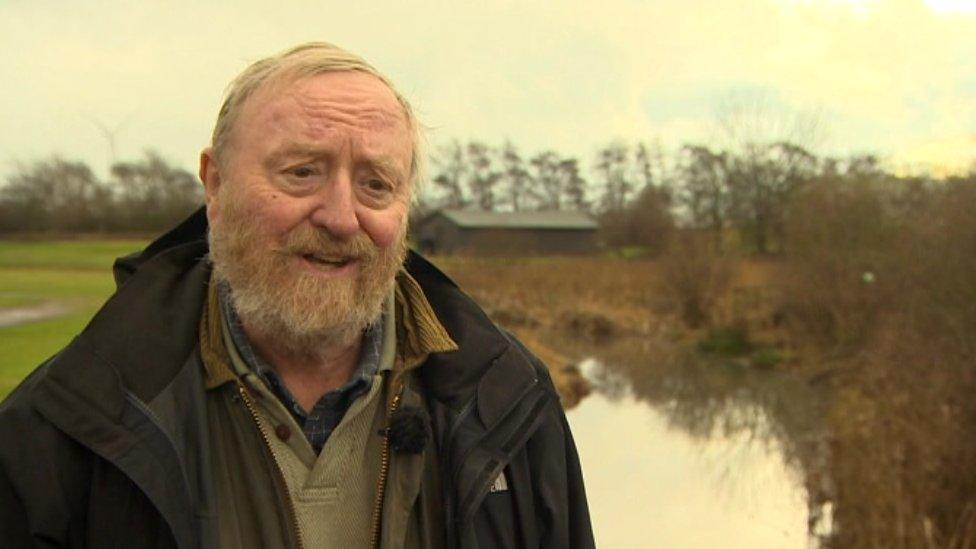
Francis Pryor, who found Flag Fen, said a museum in Cambridgeshire could be "as popular as Stonehenge"
Plans for the museum are being considered by organisations including Peterborough City Council, Vivacity, the British Museum and The University of Cambridge.
One of the sites being considered is Flag Fen, near Peterborough.
Archaeologist Francis Pryor, who discovered Flag Fen in 1982, said it could prove "as popular as Stonehenge".
"The beginnings of the Bronze Age and Iron Age are just as important as the industrial revolution," he added.
- Published14 July 2016
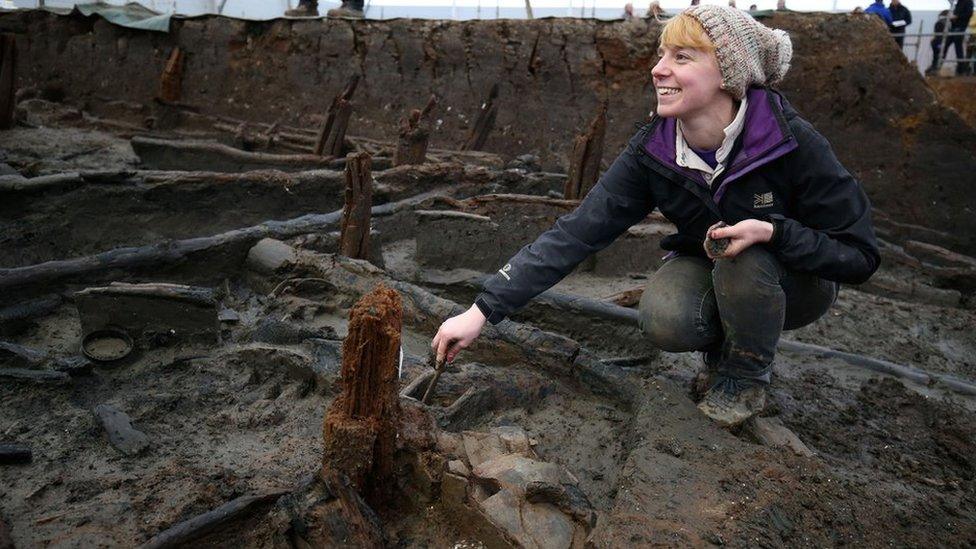
- Published12 January 2016

- Published9 December 2015
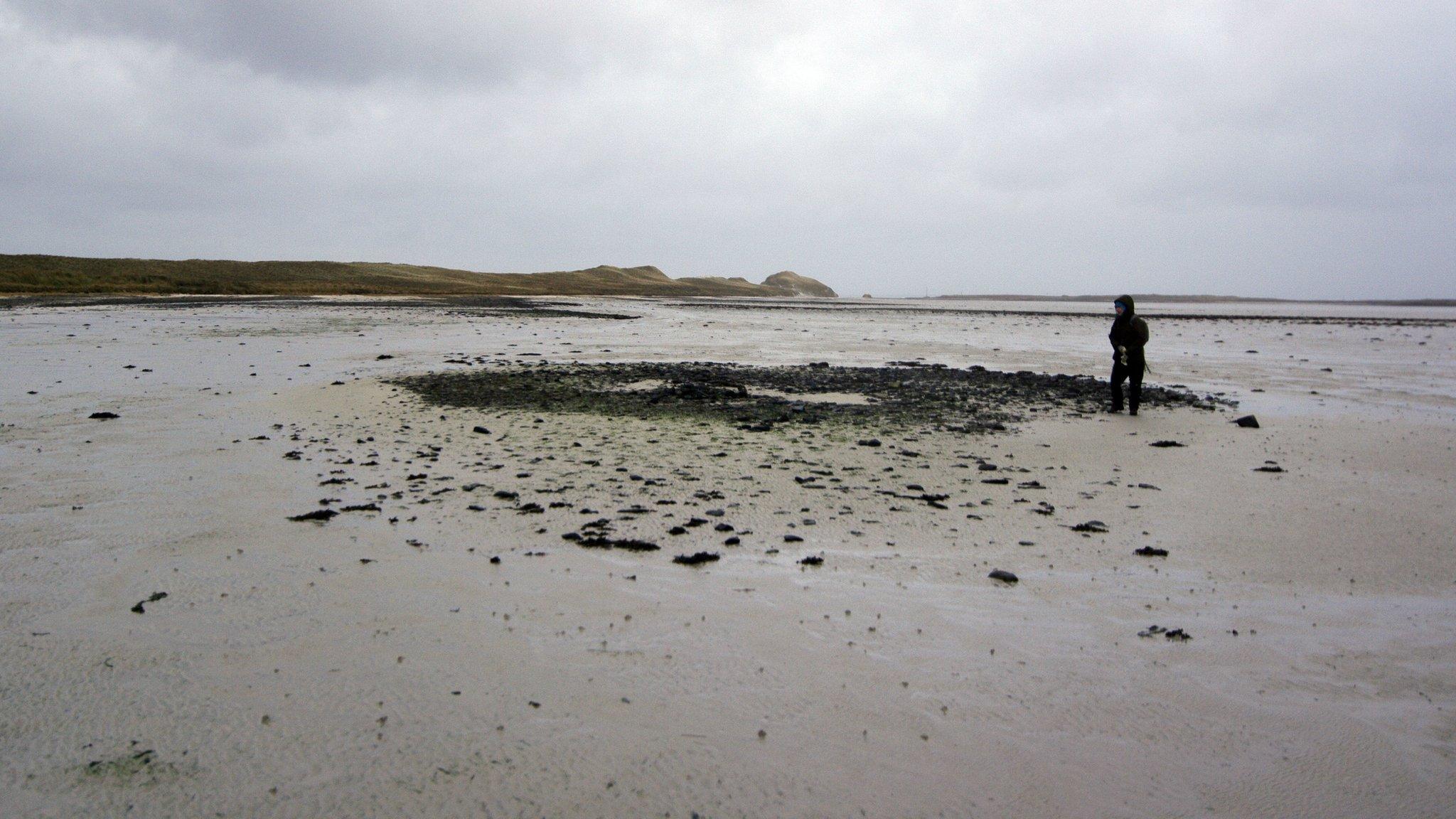
- Published19 February 2016
